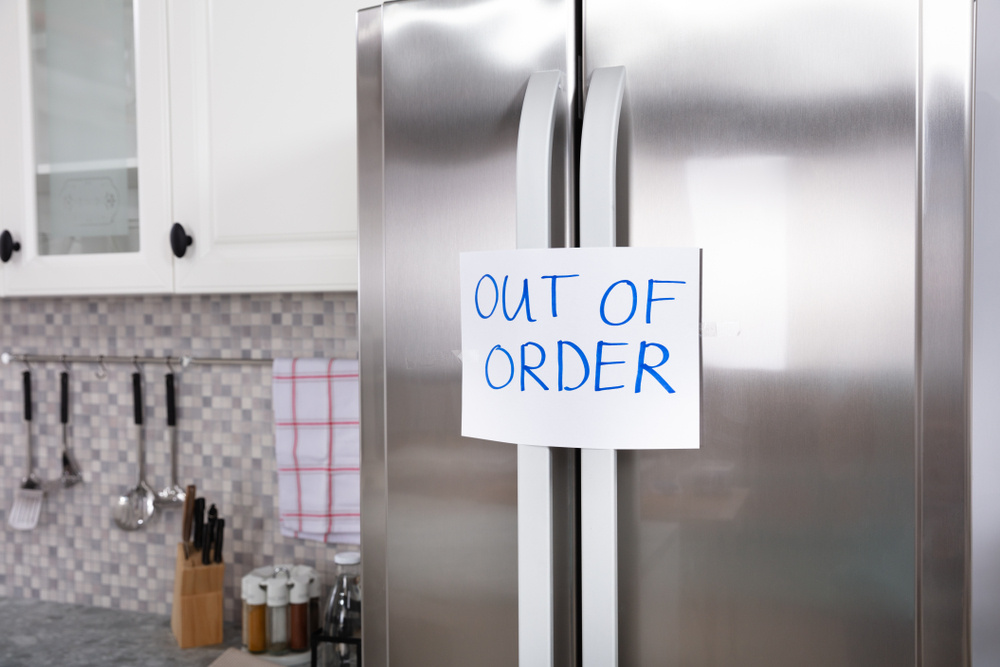A fresh-smelling refrigerator is essential for a pleasant kitchen environment and properly preserved food. This comprehensive guide will show you how to eliminate odors using natural methods and maintain lasting freshness using common household items like baking soda, activated charcoal, and vinegar.
Sign up for our Blog!
Understanding Refrigerator Odors
I'll expand this section with more detailed explanations that a 9th grader can easily understand while maintaining the same informational tone.

Common Sources of Unpleasant Smells
Before we can solve refrigerator odor problems, we need to understand exactly what causes these unwanted smells. Think of it like being a detective – you need to know what you're looking for to solve the case! Let's break down each major cause:
Expired Food: This is the number one cause of fridge odors, responsible for about 65% of all bad smells. When food goes bad, it breaks down and releases chemicals that create unpleasant odors. Common culprits include:
- Forgotten leftovers pushed to the back
- Produce that's past its prime
- Dairy products that have spoiled
- Meats that are past their expiration date
Mold and Bacteria Growth: Just like a damp basement, your fridge can become a perfect home for mold and bacteria if air doesn't move around properly. These tiny organisms love to grow:
- In corners where air doesn't circulate well
- Under vegetable drawers
- Around door seals
- In any spot where food particles collect
Condensation and Moisture: When warm air meets cold surfaces in your fridge, it creates tiny water droplets – that's condensation. This moisture can:
- Collect on shelves and walls
- Pool in drawers and containers
- Create a damp environment where mildew can grow
- Make paper or cardboard containers soggy
Cross-Contamination: This happens when strong-smelling foods share their odors with other items in your fridge. Imagine it like this: if you put an open container of chopped onions next to an uncovered bowl of pudding, your dessert might end up tasting like onions! Common cross-contamination issues include:
- Strong-smelling foods left uncovered
- Leaky containers
- Foods stored without proper sealing
- Spills that haven't been cleaned up
Dirty Drip Pans: Your fridge has a hidden pan underneath it that collects water from defrosting and condensation. Many people forget about this part, but it can become a major source of odors because:
- It collects food particles and liquids
- Warm temperatures under the fridge encourage bacterial growth
- The pan rarely gets cleaned during routine kitchen cleaning
- Stagnant water can develop unpleasant smells
Remember, identifying these sources is your first step toward a fresher-smelling fridge. Think of it like treating an illness – you need to know what's causing the problem before you can fix it effectively. Regular checks for these common issues can help prevent odors before they start.
A good rule of thumb is to check your fridge for these issues once a week, perhaps when you're putting away new groceries. This helps you catch problems early, before they can develop into major odor issues. It's much easier to prevent bad smells than to eliminate them once they've taken hold!
The Science of Refrigerator Odors
Understanding how odors develop helps in preventing them. Temperature fluctuations, humidity levels, and air circulation all play crucial roles in odor formation. Learn more about refrigerator maintenance to prevent these issues.
Natural Deodorizing Solutions
Baking Soda: The Classic Solution
Baking soda remains one of the most effective natural deodorizers due to its unique properties:
- Neutralizes both acidic and basic odor molecules
- Lasts up to 3 months when properly placed
- Most effective when spread in a shallow container
- Should be replaced quarterly for optimal results
Activated Charcoal: The Power Absorber
Discover why professional services recommend activated charcoal for stubborn odors:
- Absorbs up to 100 times its weight in impurities
- Works effectively for 3-4 months
- Best placed in multiple locations throughout the fridge
- More effective than baking soda for strong odors
Vinegar: The Natural Sanitizer
White vinegar serves dual purposes as both a cleaner and deodorizer:
- Creates an inhospitable environment for bacteria
- Neutralizes alkaline odors effectively
- Can be used both as a cleaner and ongoing deodorizer
- Should be diluted 1:1 with water for cleaning
Preventive Maintenance
Daily Practices
Implement these habits to maintain freshness:
- Check for expired items daily
- Wipe spills immediately
- Keep foods properly sealed
- Maintain proper temperature (37-40°F)
Weekly Cleaning Routine
Follow this systematic approach:
- Remove all items and sort through them
- Discard expired products
- Clean all surfaces with natural solutions
- Check and clean door seals
- Replace or refresh deodorizers as needed
Monthly Deep Clean
Professional maintenance tips recommend:
- Defrost if necessary
- Clean condenser coils
- Check and clean drip pans
- Inspect door seals for damage
- Clean behind and under the unit
Professional Solutions
When to Call a Professional
Sometimes refrigerator problems go beyond what you can fix yourself. Just like you'd see a doctor when home remedies aren't working, there are clear signs that indicate you need a professional appliance technician. Let's explore each situation in detail:
Persistent Odors Despite Cleaning When bad smells stick around even after you've:
- Deep cleaned everything multiple times
- Replaced all deodorizers
- Checked and cleaned the drip pan
- Removed all food and sanitized surfaces This could signal a deeper issue, like:
- Mold growing inside walls
- Problems with the defrost system
- Issues with the drain line
Unusual Sounds or Operation Your fridge should hum quietly. Be concerned if you notice:
- Clicking sounds that don't stop
- Loud buzzing or rattling
- Grinding noises
- A motor that constantly runs These sounds might mean:
- The compressor is failing
- Fan blades are hitting something
- Internal parts are loose or broken
Temperature Fluctuations Your food storage temps should stay steady. Call for help when:
- The fridge section isn't staying between 37-40°F
- Foods are freezing in the refrigerator
- The freezer isn't maintaining 0°F
- Different areas have very different temperatures This could indicate:
- Thermostat problems
- Failing sensors
- Compressor issues
- Door seal problems
Water Leakage Water where it shouldn't be is never good! Watch for:
- Puddles under the fridge
- Water collecting in drawers
- Ice buildup on walls
- Moisture on the outside of the unit These issues often mean:
- Blocked defrost drain
- Cracked water lines
- Failed door seals
- Problems with the water filter
Ice Maker Problems Ice maker issues can be tricky because they involve both water and freezing systems. Look out for:
- Ice that tastes or smells bad
- Ice maker not producing ice
- Ice that's too small or misshapen
- Water leaking from the ice maker These problems might be caused by:
- Clogged water lines
- Faulty water filters
- Mechanical failures
- Temperature control issues
Why Professional Help Matters Trying to fix these problems yourself can often lead to:
- Accidentally causing more damage
- Voiding your warranty
- Wasting money on unnecessary parts
- Creating safety hazards
Remember: Modern refrigerators are complex machines with multiple systems working together. When one thing goes wrong, it can affect everything else. Just like you wouldn't try to fix your car's transmission yourself, some fridge problems need expert attention.
A good rule of thumb: If a problem persists for more than 24 hours despite your best efforts to fix it, or if it involves electricity, water lines, or mechanical parts, it's time to call in a professional. Better to fix a small problem early than wait until it becomes a major repair!
Next Steps
Maintaining a fresh-smelling refrigerator requires consistent effort but doesn't need to be complicated. By combining regular cleaning with natural deodorizers and proper maintenance, you can ensure your refrigerator remains fresh and odor-free. Remember to address issues promptly and consider professional help when needed to maintain optimal performance and freshness. Explore our warranty options to protect your appliances and ensure peace of mind.





.jpg)
.jpg)



.jpg)

